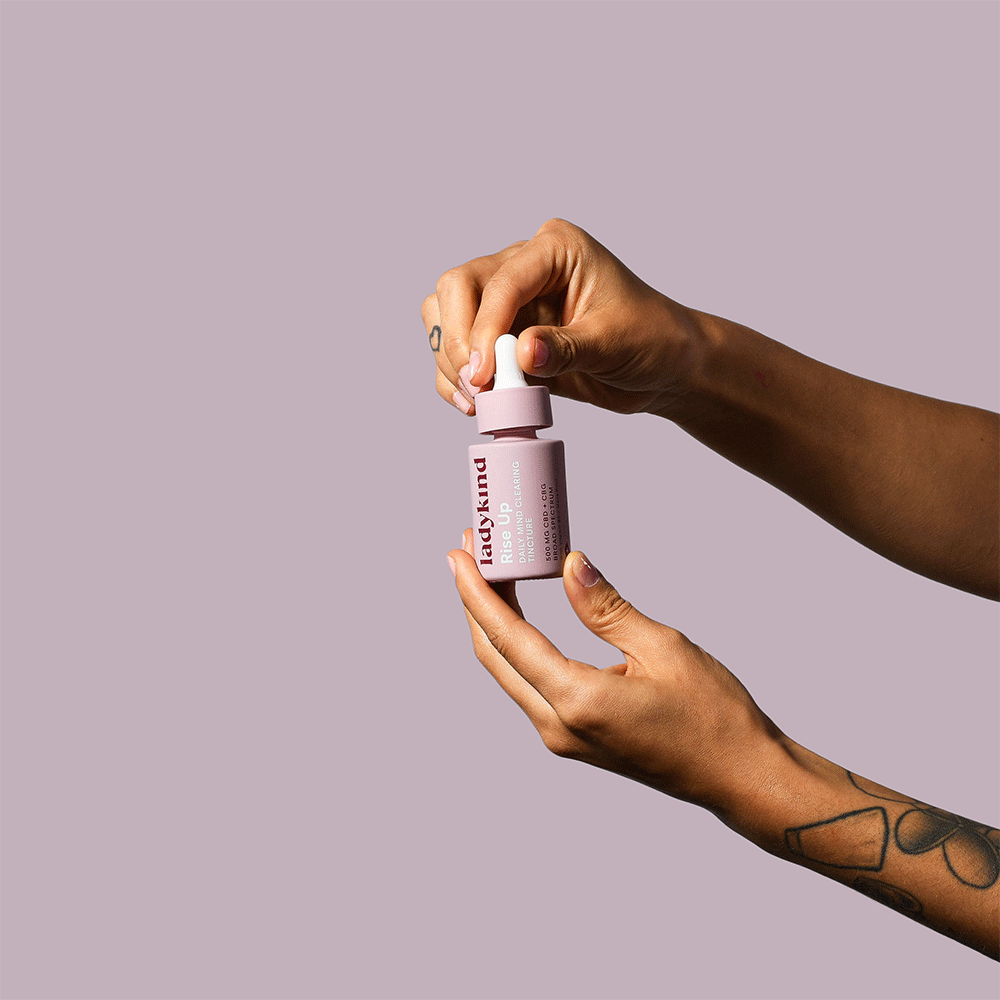In today's world, it can be hard not to operate from a place of pessimism or apathy. On top of our polarized society feeling like it's circling the drain at times, we've normalized stress so much we've become desensitized to it. While we can't excuse ourselves of every stressful situation that pops up, we can reframe our relationship to stress by way of how we choose to respond to it.
How is stress impacting me?
Stress is any mental or physical demand that's placed on us. It's usually triggered by fears, worries and uncertainty we hold as a part of our story, or our internal narrative. We attach ourselves to these stories that eventually harden into (limiting) beliefs. We convince ourselves of their truth and if sustained, allow them to inhabit our identity.
When we fail to create distance between ourselves and our emotions, we live on auto-pilot while vehemence controls our thoughts and behavior. Concealing fears and insecurities only causes them to amplify inside. Sooner or later, they manifest as external conflicts or a lack of self-awareness.
The good news is, there are plenty of things you can do, not only to relieve yourself of stress, but to also shift how you position yourself to and therefore react to it. Your body will let you know when it's hit its threshold for harboring stress. If you're overwhelmed to the point it's impacting your physical health, you might be experiencing weight loss or weight gain, weak nails, hair loss, insomnia or stress acne.
Culturally, we have been conditioned to turn the other cheek to stress.
Just sweep it under the rug, along with all the other unpleasantries we don't want to deal with. As long as we can keep going, what harm does it do to 'table it for later'?
As easy of a solution as this may seem, it's counter-productive and harmful to your mental health. Conversely, if we can learn best practices to manage stress effectively, these internal conflicts that haunt us subconsciously can fuel us to chase our wildest dreams, grow in compassion and self-awareness, and step into our power to operate as our highest selves.
The next time you experience a minor setback in your day, accept it as a challenge to flex discipline over your response. The more you practice, the more you feed the strength of your character. Although it sounds like a large feat, this is actually accomplished through the accumulation of simple, daily habits we can adopt to change our relationship to stress.
Here are 8 habits you can start doing right now for a less stressful life:
1. Do a brain dump
The first thing we can do to liberate ourselves from our daunting fears and insecurities is: write them down.
Literally, let it all out.
This is one way we can encourage ourselves to observe our emotions rather than identifying with them. As an extension of your daily affirmation recital, try writing out a list for each of the below:
- Your fears
- Your insecurities
- Attachments you're holding onto from the past
- Expectations you're holding for the future
Next, whether by speaking it out loud or writing it in your notes, release them.
If you enjoy this exercise and are looking for further journal prompts to help with the release process, check out our blog post: Try It Yourself: Mental Health Cleanse.
2. Find (new) things to be grateful for
Think of it as a daily test to expand your gratitude.
The first day, give thanks for the food on your plate. The next, give thanks for the hand that helps you eat it. After that, express gratitude for the digestive system that helps you break that food down, and so on.
See just how meticulous you can get about what you can be grateful for.
3. Get outside!
If you can, talk a walk. If it's your preference, go for a run. If you feel compelled, go ahead and do a full on, outdoor workout!
At minimum, make it a point to spend at least ten minutes per day outside the walls of your home. Even if it just means sitting on a park bench with a coffee and a good book.
4. Wait one(+) hour before checking your phone in the morning
Let your body catch up with your brain before bombarding it with all the incoming demands (aka stress) from the outside world. Develop a ritual composed of your favorite self-care activities (and find a home for it) that you can perform every morning before you reach for your phone.
5. Use your calendar
One of the biggest stressors for many of us managing multiple commitments on a daily basis is failing to manage our time well. This can lead to brain fog or difficulty focusing because we're never rooted in flow. Instead, we're constantly doing the mental commute from one area of life to another.
Using your calendar is a simple habit you can pick up today to schedule and block off time to properly tend to everything that requires your time and attention.
6. Nourish your body
Poor eating habits immediately impact stress levels. That's just a fact.
Depending on your appetite and feelings about food, this could mean anything from working a full breakfast into your morning routine, to incorporating tinctures or supplements to balance your hormones (or your mood) and body. Whatever you decide works best for you, keep in mind - a nourished body runs better than an emaciated one.
One easy way to acquire this habit is to use Ladykind's CBD Rise Up & Wind Down tinctures. One to boost your energy throughout the day and the other designed to help you wind down at night, this dynamic duo of sublingual tinctures can be taken directly or as an additive to your favorite beverage multiple times daily for best results. The finest quality broad spectrum CBD, blended with other purposeful ingredients not only helps manage your mood, but also alleviate pain and discomfort caused by menstruation and menopause.

7. Go to bed an hour earlier
Sleep is usually first to get reprioritized when our plate starts to get full. Nonetheless, an hour of extra sleep can go a long way.
A successful morning starts the night before. Give it a try and notice the difference it makes in boosting your vibrancy and focus.
8. Do something nice for a stranger
Helping others find happiness is how you find the way to yours.
If you're interested in stabilizing or expanding your own personal development, start by considering how you might leverage your current position to serve someone else - with no other motive other than to spread love and kindness into the world.






